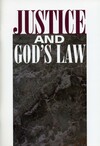

Are you sure?
This bookmark will be removed from all folders and any saved notes will be permanently removed.
True justice
As I stood by the police car that Saturday afternoon, it was a timely moment for me to consider what true justice is and how we bring it into our lives. The teenage boy confined in the back seat had just been apprehended by me as he tried to set fire to my school. The policeman who answered the call and placed the young man under arrest had pulled me off to the side and was encouraging me to just let the boy go and not press charges. His reason? In spite of the boy's obvious guilt, the officer said that the local court system was so backlogged that the boy would probably receive little or no punishment. The policeman's radio crackled incessantly with calls more serious than mine. He needed an immediate answer.
What a choice! Could I really let someone who had tried to commit a serious crime go free? Was this truly my only option? I knew that God's law can be appealed to for healing, and I realized that this same law could lead me to the right answer—one that was just for both me and the young man. In other words, instead of accepting a limited, human sense of justice appearing as an overburdened material system, I chose to follow what I knew of divine justice.
Human justice is not without merit, of course. But it may deal only with effects instead of causes. This view is summed up succinctly in the Old Testament book of Deuteronomy: "And thine eye shall not pity; but life shall go for life, eye for eye, tooth for tooth, hand for hand, foot for foot" (19:21). This type of justice looked exclusively at wrongful acts that were committed and sought to repay them with commensurate punishment. The world's legal systems have largely moved far from this philosophy, often taking into account the criminal's intent and motive. Many people—including those in the justice system—deeply desire solutions that will cut down on crime and recidivism in particular. But the mental framework in which they are operating—a system of mortal beings, some bent on justice and others on criminal behavior—needs to be elevated.
Enjoy 1 free Sentinel article or audio program each month, including content from 1898 to today.
JSH Collections
This article is included in:
1997 - PAMPHLET
Justice and God's law
JSH-Online has hundreds of pamphlets, anthologies, and special editions for you to discover.

January 15, 1996 issue
View Issue-
True justice
Paul Douglas White
-
Never a victim
Toni Tartoué Wengler
-
Not crime/not time
June McCleneghan Fowler
-
Seeing equal ... to conquer racism
by Kim Shippey
-
Telling the truth, not covering it up
Gwendolyn Joy Forest
-
Clearing away doubt and fear
Bob Meriwether
-
Don't be afraid to introduce these friends
Wendy Louise Stevens
-
An elemental struggle—a fundamental blessing
William E. Moody
-
When I was manufacturing manager for a small electronics...
Richard D. Soulé
-
My husband and I had purchased a large old house and were...
Agnes Mary Lilge
-
Last fall, while I was crossing a highway near my home, I walked...
Arthur S. Bradley


